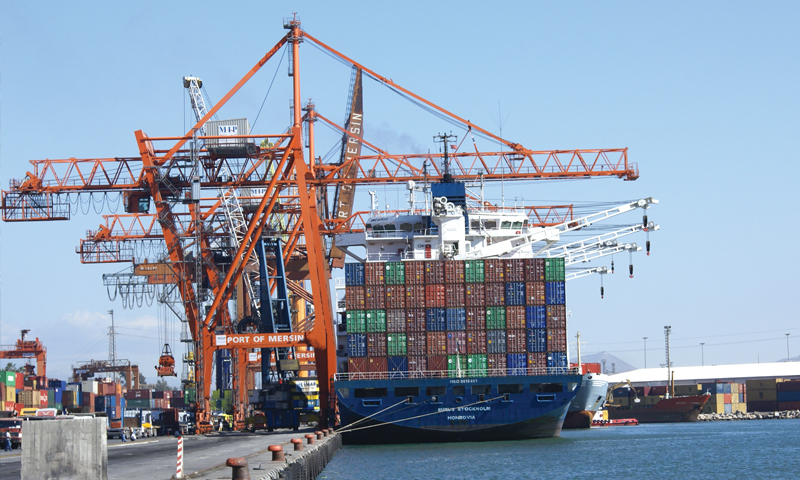Turkey’s struggle against Israel
Han Haeun(SNUAC)
On May 2, Turkey declared a complete suspension to trade with Israel, emphasizing that trade would only resume if a permanent ceasefire was established between the Israeli government and Hamas. Last April, Turkey had urged the Israeli government to declare an immediate ceasefire and allow humanitarian aid, restricting the export of 54 items to Israel. This month, on the 2nd, Turkey announced the ‘second phase measure’ by completely suspending trade between the two countries. The Israeli Foreign Minister criticized Turkey’s action on social media platform X, stating that this move disregarded the interests of Turkish citizens and business-people, as well as international trade agreements.
In 2023, Turkey was Israel’s fourth largest trade partner, with the trade volume between the two countries amounting to $6.8 billion last year. As the world’s seventh-largest food producer, Turkey is a major supplier of some key food items consumed in Israel, including tomatoes and chocolate. Turkey’s southern port of Mersin is approximately 400 miles by sea from Israel’s Tel Aviv, making Turkey a crucial supplier of food and construction materials.
Despite the widespread belief that Turkey’s trade ban declaration wouldn’t last long due to its poor economic situation, Reuters reported on the 9th that the Turkish government would allow Turkish companies to export to Israel through third countries for the next three months. However, Turkey immediately dismissed claims from Israeli officials that it had eased the trade ban, stating that these claims were false.
Turkey’s sudden trade ban declaration against Israel impacts Jewish and Turkish individuals involved in import-export activities and is expected to worsen the economic situation in both countries. Currently, between 10,000 and 15,000 Jews live in Turkey, most of whom reside in the port cities of Izmir and Istanbul and are involved in exports to Israel.
On the 16th, Israel’s Finance Minister Smotrich announced the termination of the free trade agreement with Turkey and declared that a 100% tariff would be imposed on all imports from Turkey. He stated that this measure was in retaliation for Turkey’s order on the 2nd to halt all trade transactions with Israel. Additionally, Israel has reported Turkey’s unilateral trade suspension to the OECD, according to Israel’s Economy Minister Markart.
The escalating conflict between the two countries due to the Gaza Strip issue is likely to increase prices in Israel and worsen Turkey’s economic situation. It remains to be seen how the confrontation between the two countries, which benefits no one, will contribute to the larger goal of peace in the Gaza.
이스라엘에 대한 튀르키예의 저항
한하은(아시아연구소)
튀르키예가 5월 2일 이스라엘과의 교역을 전면 중단한다고 선언했다. 이스라엘 정부와 하마스의 영구적 휴전이 있어야만 무역이 재개될 것이라 말했다. 튀르키예는 지난 4월 이스라엘 정부에 즉각적인 휴전 선언과 인도주의적 지원 허용을 촉구하며 54개 물품의 대이스라엘 수출을 제한한 데 이어 이달 2일 양국 간 무역 거래를 완전히 중단하는 ‘2단계 조치’를 선언한 것이다. 이스라엘 외무장관은 이날 소셜미디어 X에, 튀르키예의 이번 조치는 튀르키예 국민과 기업인들의 이익 그리고 국제 무역 협정을 무시하는 행동 방식이라고 비판했다.
2023년 튀르키예는 이스라엘의 상위 네 번째 무역 파트너였으며, 양국의 무역 규모는 지난해 기준 68억 달러에 달했다. 세계 7위의 식품 생산국인 튀르키예는 토마토와 초콜릿을 포함하여 이스라엘에서 소비되는 일부 주요 식품의 주요 공급원이다. 그리고 튀르키예 남부의 가장 큰 항구인 메르신과 이스라엘의 텔아비브가 약 400마일에 달하는 지리적 근접성으로 튀르키예는 식품 및 건축 자재의 주요 공급원이 된 것이다.
튀르키예는 경제 상황이 좋지 않기 때문에 무역 금지 선언이 오래가지 못할 것이라는 여론이 있던 중에 로이터 통신이 9일 튀르키예 정부가 자국 기업이 제3국을 통해 이스라엘에 수출하는 것을 향후 3개월간 허용하기로 했다며 보도하는 일이 있었는데 튀르키예는 성명을 통해 무역 금지를 완화했다는 이스라엘 관리들의 주장은 사실이 아니라며 즉각 일축했다.
갑작스러운 튀르키예의 이스라엘을 향한 무역 금지 선언은 두 국가에 살며 수출입에 관여하는 유대인과 터키인들에게 영향을 미치며 두 국가의 경제 상황도 악화시킬 것이 자명하다. 튀르키예에 현재 10,000명에서 15,000명 사이의 유대인이 살고 있으며, 대부분은 항구 도시인 이즈미르와 이스탄불에 살며 이스라엘과의 수출에 관여하고 있다.
이스라엘의 재무장관 스모트리치는 16일, 앞으로 튀르키예와의 자유무역협정을 파기하고 튀르키예로부터 들어오는 모든 수입 상품에 대해 100% 관세를 부과하기로 했다고 발표했다. 그는 이번 조치가 튀르키예 정부가 지난 2일 이스라엘과의 모든 무역 거래를 중지하도록 명령한 것에 대한 보복이라고 밝혔다. 그뿐 아니라 이스라엘은 OECD에 튀르키예가 일방적으로 이스라엘과의 무역을 중단한 것을 고발했다고 이스라엘 경제부 마르카트 장관이 발표했다.
이와 같은 양국의 치닫는 갈등은 이스라엘 물가 상승 및 튀르키예의 경제 상황 악화로 이어질 것이다. 누구에게도 유리하지 않은 양국의 대립이 가자지구의 평화라는 대의를 위해 어떻게 소용될지 귀추가 주목된다.

